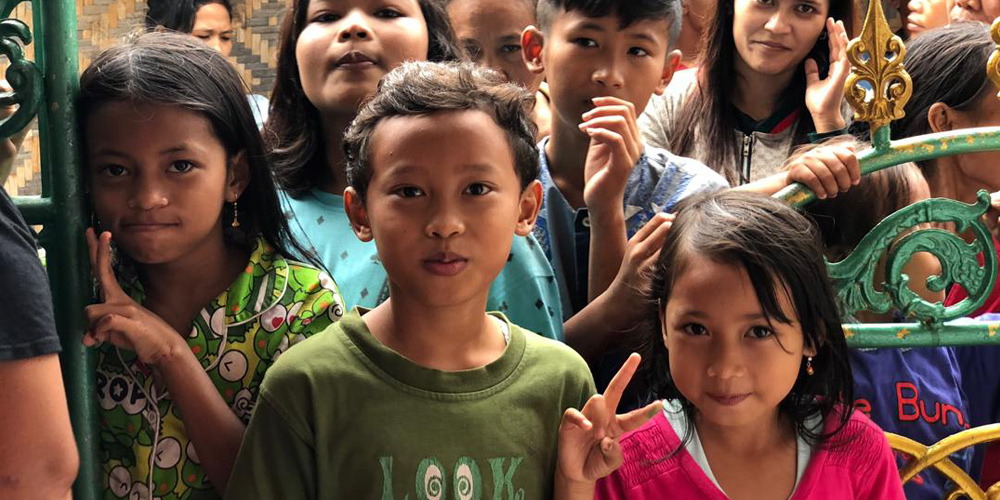Islamic Relief Australia supported a cornerstone three-year project that changed the lives of those facing flash floods and poverty in Central Indonesia. The first of its kind, the Convergence on Disaster Risk Reduction and Livelihood (CODRAL) project, empowered communities and increased their skills to protect themselves from natural disasters and used Sharia micro-financing to support vulnerable families.
Climate change is altering the face of disaster risk, not only through increased weather-related risks, rising sea-levels and temperatures but also through increases in societal vulnerabilities. Communities across the world are facing stresses due to water shortages, increased droughts, low agriculture productivity, and declining ecosystems.
Disaster risk reduction and climate change adaptation share a common goal: to reduce the vulnerability of communities and achieve sustainable development.
Southeast Asia recorded 9.5 million new displacements associated with disasters in 2019, the highest figure since 2012. Indonesia is prone to natural disasters and flooding. The floods have a devastating impact on lives and livelihoods, causing families to fall into a cycle of poverty and debt.
The CODRAL Project in Focus
Building communities and preparing them to co-exist with the changing ecosystem; by fostering traditional knowledge on farming and livelihoods, to minimise both losses of life and livelihoods. The Project targeted the Dompu and Bima districts of Indonesia facing regular flooding.
The project developed and strengthened the capacity of communities to prepare themselves ahead of natural disasters and promoted building livelihoods through sharia financing.
The project was supported by Islamic Relief Australia and worked with local organisations to empower villagers in disaster zones to be prepared with early warning, evacuation drills, and first aid in case of impending floods. A dedicated committee of villagers was trained for program continuity.
Togetherness and Community Ownership of Resources
In the words of Muhammad Tahir, Village Head, Penapali, “The training and formation of village disaster risk reduction team has made the community more aware on environmental issues. Sewage and rivers are becoming cleaner since the community has been made aware about the risk and threat of the disaster”.
The area faces water scarcity in the dry season. Islamic Relief’s intervention used local knowledge and needs assessment to drill a water well, to provide clean water and irrigation support. Many people, even those in the adjoining villages use the water well, which is a high-point for community meetings and discussions, bringing so many people together.
Livelihood Support
The project also focussed on building the economic resilience of communities against disasters through training in community-based disaster management, business continuity management, and the provision of Shariah microfinance. Community members learned to rebuild their businesses after disasters so that they can recover quickly and with minimal loss.
Take the case of Ruilah, who was a beneficiary of the Sharia Microfinance. A small shop owner, Ruilah supports the family while her husband cultivates a small piece of land as a cashew nut farmer.
Farmers in South Asia survive on a debt cycle, where they take loans to buy seed and fertilizer, and then once the crop reaps they pay their debts. But in an area prone to flash floods, the gamble is for bountiful or nothing.
With the Sharia Microfinance support, Ruilah can expand the products in her shop and attract more buyers. “During planting season, my shop is very busy with the farmers who come to buy their supply for the farm,” she says.
The daily income of the shop increased significantly and she is now able to support her family during the time of sowing to reaping their crops.
Islamic Relief’s microfinance programmes have been providing livelihood opportunities for vulnerable people since 1994. Offering interest-free Shariah-compliant loans and support for starting small businesses, we have helped 100,000 entrepreneurs to date and circulated some 115 million dollars (60 million pounds) worth of investment to people in need. For Islamic Relief, microfinance programs are sustainable development at their best, with a revolving loan fund that supports more and more people to become self-reliant. In 2019, Islamic Relief has 15 million dollars (6 million pounds) worth of active loans supporting 17,000 entrepreneurs.


